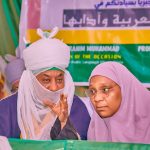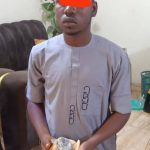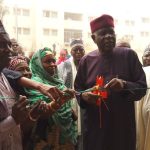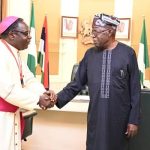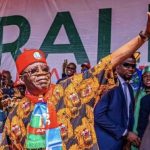The Kano council of the Nigeria Union of Journalists (NUJ) just did the unthinkable, by denying two journalists.
According to a statement by the Kano Police Command’s spokesperson, SP Abdullahi Haruna Kiyawa, the union declared that Yakubu Salisu and Abdulaziz Aliyu are not its members. The said denial is in connection with the ongoing case, involving Abdulaziz Aliyu, over a publication on his platform, which led to a police case.
This declaration is profoundly disturbing, forcing a critical question: In a country where journalists face increasing risks, why would their own professional union seemingly abandon them at a critical moment? This incident points to a deeper malaise within the NUJ, an alleged slide into political gatekeeping that undermines its core mandate to protect all practitioners and raises the grim possibility of a “dog-eat-dog” reality.
Within journalistic circles, it is a poorly kept secret that NUJ membership is fraught with allegations of being politicized, where some journalists deemed “critical” or branded “anti-government” face significant hurdles. This has created a trust deficit, compelling many new-generation journalists and even entire media outlets to forgo membership altogether.
The NUJ’s stance conveniently ignores the legal and professional reality of journalism in Nigeria. The path to becoming a journalist is not dictated by a single, legally mandated qualification but is shaped by a blend of education, practical experience, and adherence to a professional code of ethics. While a formal degree in journalism is common, it is not a strict legal prerequisite; many of Nigeria’s most renowned journalists hold degrees in other fields.
Again, the NUJ is not the sole arbiter of professional identity. The media landscape is enriched by several other respected bodies, including the Nigerian Guild of Editors (NGE), the Newspaper Proprietors’ Association of Nigeria (NPAN), the Sports Writers Association of Nigeria (SWAN), and the Broadcasting Organisations of Nigeria (BON). Crucially, Nigeria’s 1999 Constitution, under Section 40, guarantees every citizen the right to freedom of association. This means no single union holds a monopoly over a professional’s right to practice.
The disavowal becomes particularly egregious when considering the credentials of the individuals involved. By what professional metric, other than a contentious membership list, are these individuals not journalists?
Yakubu Salisu is an award-winning journalist with over a decade of experience spanning National Dailies and international platforms like the Institute for War and Peace Reporting, London.
He is a seasoned fact-checker and investigative reporter, who has worked with the International Centre for Investigative Reporting,(ICIR), International Centre for Journalists (ICFJ), and also obtained training from DUBAWA, a leading fact-checking organization in Nigeria, to mention but a few.
Likewise, Abdulaziz Aliyu is a vibrant, formally-trained journalist actively building his career in the field, attending trainings, workshops and honing his professional expertise.
When the NUJ allows its name to be used by security agencies to delegitimize practitioners, it does more than just disown two individuals; it provides a clear justification for their potential mistreatment and sends a dangerous signal to all journalists.
The fundamental purpose of a union is to offer a protective shield, not to wield a political sword. The leadership of the NUJ must reflect on whether it is serving the interests of all journalists or becoming a tool that endangers them.
It’s however not surprising considering the composition of the current Kano NUJ executives, who all, but one are from government owned media organizations, starting from its Chairman, who is with the ministry of information, vice chairman, FG owned radio station, secretary, state government owned TV station, assistant secretary, state owned radio station, treasurer, state owned radio station, financial secretary, state owned TV station, and auditor ministry of information.
Confirming this alleged statement of denial by the NUJ, a call was put to its Chairman, Comrade Sulaiman Dederi, seeking his position on what qualifies one to be called a journalist, but he promised to return the call, and never answered subsequent calls, till the time of penning this piece.
There are silent issues going on with journalism in Kano which many have their knowledge, but afraid to speak about. The world is watching.
Again, the freedom of press and expression must not be endangered.
Vox Popli, Vox Deis!
The opinions and views expressed by contributors are solely their own and do not reflect the official stance of Kano Times.

